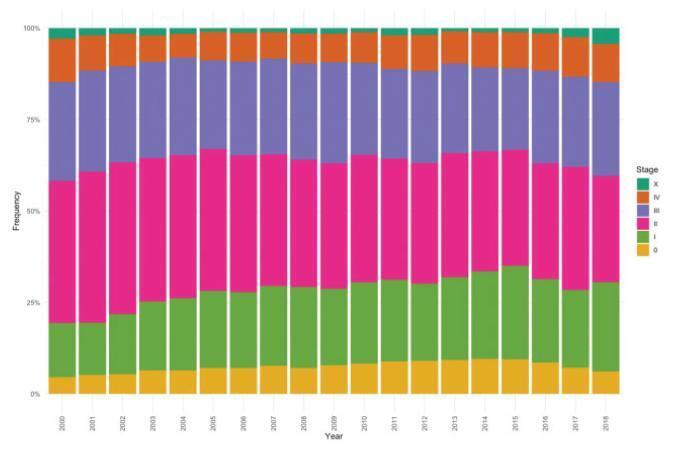Revista Brasileira de Ginecologia e Obstetrícia. 12-20-2019;41(11):633-635

Breast cancer incidence has been substantially increasing in developing countries in the last decades. In Brazil, the total number of new diagnosed cases reaches 60,000 a year, resulting in an incidence rate of 60/100,000 women per year. Despite the high incidence, breast cancer is described as a relatively good prognosis cancer. The worldwide incidence/mortality rate is 3.3. However, this ratio varies within different populations with an evident decrease in developing countries when comparing to developed ones. The impact in prognosis in this scenario may be attributed to late diagnosis and discrepant technological improvement on cancer therapies.
Mammographic screening has been described as an effective method for early breast cancer detection with substantial impact on breast cancer specific survival. A Norwegian study showed the implementation of a breast cancer screening program was able to detect an increased number of ductal carcinomas in situ (DCISs), and substantially reduced the number of locally advanced and metastatic tumors, resulting in a significant improvement in the breast cancer specific prognosis. They observed the fact of inviting women to mammography screening was the most significant factor impacting survival. This result has demonstrated that breast cancer awareness is a crucial piece of a breast cancer screening program.
[…]
Search
Search in:


Comments